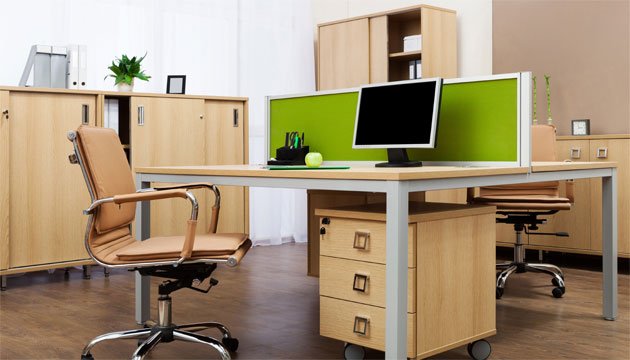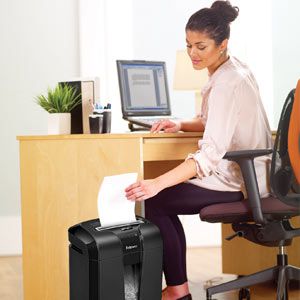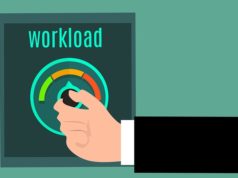
Working from home is not the rare or quirky activity it once was – online communication has made it a sensible and practical option for millions of people. Of course, everybody’s demands and resources will be a little bit different, but it’s good to start with a solid idea of which items will be vital for an effective – and enjoyable – home-office.

The chair
If you work at a desk, and work full time, you could be spending nearly 2000 hours every year in your office chair. So it’s hardly surprising that your chair will be important to your work environment. If this is the first time you’ll be purchasing an office chair, the price tags may seem daunting, but a good purchase will set you up for a long time to come.
You might want to get in the mood by looking at some stone-cold classics, like the Pollock Executive Chair or the Eames Aluminium. But for sober advice, John Lewis has put together a useful guide.
The desk
People sometimes make the mistake of thinking that ergonomics is all about the chair you’re sitting in – whereas a good desk can be just as important. In fact, you won’t be surprised to learn that it’s the combination of chair and desk that’s especially crucial. (If you’re interested in the question of desk height, this discussion will give you plenty to consider…)
But ergonomics isn’t everything. What will you be asking of your desk? Will it just be for a computer, or a whole filing system too? What other surfaces, if any, might take the pressure off the desk? Can you afford to commission a bespoke design? Ergonomics guides often use the rather ugly term ‘workstation’, which makes the whole thing seem a bit dull. A desk can be a beautiful thing – as long as you know exactly what it’s for.
 The shredder
The shredder
However much time you spend trawling the internet (and especially Pinterest) for images and ideas for home-office design, you probably won’t see much in the way of shredders. They rarely look sexy. But shredding can be surprisingly important to an efficient work environment. Whatever your line of work, there’ll probably be confidential documents to dispose of. Unless you’ve a huge space, preventing a build-up of paperwork will be one of your key challenges, and a shredder might just be your secret weapon.
The big picture
Decorating the walls is always going to be one of the more fun parts of the job, but that’s not to say you shouldn’t take it seriously. Assuming you will use some wall space for work-related stuff (a pin board, whiteboard, calendar, etc.), be sure to reserve a nice big gap for something escapist.
Art posters are obviously very affordable, but you could also consider an original piece. It’s amazing how much more absorbing it is to have a ‘real painting’ in your room – and it’s a nice conversation point for any visitors you might have, too. Etsy is always a good place to start, and graduation exhibitions in local art colleges might also be worth checking out.
 The window
The window
I know what you’re thinking – this one isn’t really up to you! Yes, very few people will have the opportunity to make design decisions about structural features like walls, doors and windows – but that doesn’t mean you can’t make the most of them.
If you’re only just starting a working-from-home routine, you might well be a little worried about a spot of cabin fever. Regular trips out (of the room!) are of course important, but uncluttered window space can also help enormously. Keep the window sill clear of office supplies, keep some wall space around the window, and keep the window clean. Even if it’s not quite a room with a view, you’ll still feel the benefits…
Joseph O’Brien writes on work, home and design matters – from his much-loved box room!








